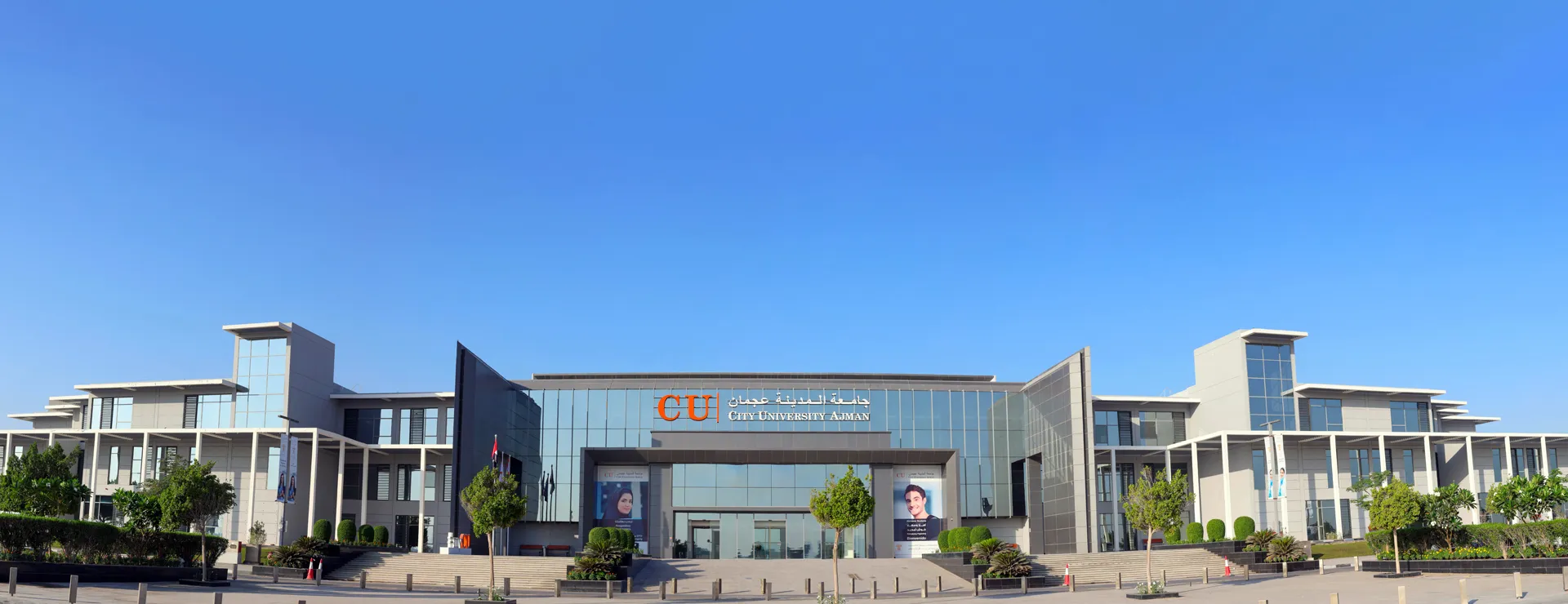- الصفحة الرئيسية
- عن الجامعة
- لماذا CUA ؟
- قيادة الجامعة
- مجلس الأمناء
- مكتب رئيس الجامعة
- الاعتماد والترخيص الأكاديمي
- الهيكل الإداري التنظيمي لموظفي جامعة المدينة عجمان
- شركاؤنا
- الإحصائيات
- المسؤولية المجتمعية
- البحث العلمي
- فريق العمل
- ريد
- المدونات
CUA has renewed its licensure in year 2025 | لقد تم تجديد ترخيص الجامعة في عام 2025


العلاقات العامة والتسويق هما تخصصان منفصلان ولكنهما متشابهان ويؤديان دورًا مهمًا في أنشطة الترويج والتواصل في المؤسسات. يعد السؤال الأصعب حول إحدى الخيارات الدراسية الشائعة في برامج البكالوريوس بجامعة المدينة عجمان للشباب هو كيفية اختلاف العلاقات العامة عن التسويق. على الرغم من أن كلا المجالين يسعيان إلى تحسين سمعة العلامة التجارية وزيادة ظهورها، إلا أنهما يتميزان بتركيزات وأساليب وأهداف مختلفة. في هذه المدونة، دعونا نلقي نظرة على الفروقات الرئيسية بين التسويق والعلاقات العامة.
إحدى الأهداف الأساسية للعلاقات العامة هي إدارة والحفاظ على الصورة الخارجية للمؤسسة أمام وسائل الإعلام والعملاء والموظفين والمستثمرين والجمهور العام. يمكن أن تغير العلاقات العامة الفعالة الطريقة التي ينظر بها الجمهور إلى الشركة من خلال بناء والحفاظ على علاقات إيجابية. من بين المهام التي يقوم بها متخصصو العلاقات العامة: التفاعل مع الجمهور، الاستجابة لطلبات وسائل الإعلام، التعامل مع الأزمات، وخلق الأخبار الإيجابية. يشاركون في جهود المسؤولية الاجتماعية للشركات، وعلاقات وسائل الإعلام، وإصدار الأخبار، وتنظيم الفعاليات، والمشاركة المجتمعية لتعزيز سمعة المنظمة.

و بخلاف ذلك، يهدف التسويق إلى جذب وإرضاء والاحتفاظ بالعملاء من خلال إنشاء وترويج وتقديم السلع والخدمات. يتضمن التسويق تحديد احتياجات العملاء، ووضع خطط تواصل فعالة للوصول إلى العملاء، وترويج المنتجات والخدمات لزيادة المبيعات والربحية. يقوم المتخصصون في التسويق بإجراء أبحاث السوق كجزء من عملهم، وتطوير استراتيجيات تسويقية، وتنظيم حملات إعلانية وترويجية، والتفاعل مع المستهلكين عبر وسائل متعددة، بما في ذلك الطباعة والتلفزيون والوسائط الرقمية ووسائل التواصل الاجتماعي. أهداف التسويق الرئيسية هي تحفيز الطلب، وتعزيز الوعي بالعلامة التجارية، وتشجيع اكتساب العملاء والاحتفاظ بهم.
يهدف كل من مجالي العلاقات العامة والتسويق إلى تعزيز سمعة العلامة التجارية، لكن العلاقات العامة تركز غالبًا على إدارة العلاقات مع عدة مؤسسات. من ناحية أخرى، يركز التسويق بشكل حصري على العملاء ويسعى إلى زيادة المبيعات. و بينما يركز التسويق على تحقيق نتائج سريعة والوصول إلى أهداف مبيعات محددة، تركز العلاقات العامة على بناء علاقات طويلة الأمد والحفاظ عليها. في حين يركز التسويق على منتجات أو خدمات معينة و أثرها في السوق، تعمل العلاقات العامة غالبًا على نطاق أوسع وتشمل العمل التجاري ككل.
و تعتبر الأهداف الأساسية للعلاقات العامة هي تعزيز المصداقية، وبناء الثقة، والحفاظ على الشفافية. يعتبر سرد القصص تقنية شائعة يستخدمها المتخصصون في العلاقات العامة، حيث يصيغون روايات تتماشى مع قيم وأهداف المنظمة. يسعون للإجابة بنجاح على استفسارات الصحافة، وإدارة الأزمات، وخلق تغطية إعلامية إيجابية. في المقابل، يستخدم التسويق استراتيجيات إقناع وترويج أقوى لدفع العملاء إلى اتخاذ إجراء. و تركز رسائل التسويق غالبًا على خصائص المنتج، وفوائده، وعوامل بيعه الفريدة لزيادة اهتمام العملاء والمبيعات.
يختلف القياس والتقييم أيضًا بين العلاقات العامة والتسويق. يتم قياس جهود التسويق غالبًا من خلال مؤشرات الأداء الرئيسية (KPIs) مثل إيرادات المبيعات، واكتساب العملاء، معدلات التحويل، والعائد على الاستثمار (ROI). يمكن ربط نجاح حملات التسويق مباشرة بهذه المقاييس. في المقابل، تعتمد تقييمات العلاقات العامة غالبًا على مقاييس نوعية مثل تأثيرات الإعلام، وتحليل المشاعر، ووعي العلامة التجارية، واستطلاعات الإدراك. في حين قد يكون من الصعب تحديد تأثير مالي مباشر لجهود العلاقات العامة، إلا أنها تساهم في بناء السمعة على المدى الطويل وإدارة العلاقات.
رغم اختلافهما، تتعاون العلاقات العامة والتسويق بشكل متكرر ويكمل كل منهما الأخر. يعد الترويج للشركة وخدماتها أحد أهدافهما المشتركة. غالبًا ما يعمل محترفو العلاقات العامة والتسويق معًا في حملات متكاملة، حيث تعزز عمليات العلاقات العامة جهود التسويق.
يعتمد نجاح الشركة ونموها بشكل متساوٍ على التسويق والعلاقات العامة، رغم كونهما مجالين دراسيين منفصلين وكلا التخصصين تقدمهما جامعة المدينة عجمان.










يمثل الالتحاق ببرنامج البكالوريوس في إدارة الأعمال (BBA) فرصة للطلاب للمتابعة في مجالات متنوعة. من بين التخصصات الشائعة هي إدارة الموارد البشرية (HRM) وإدارة المالية والمحاسبة. في هذه المدونة، سنستكشف العوامل التي يجب مراعاتها عند اتخاذ قرار بين هذين التخصصين، مما يساعد الطلاب على اتخاذ خيار مستنير لرحلتهم في برنامج البكالوريوس في إدارة الأعمال.
اقرأ المزيد
اختيار برنامج البكالوريوس في القانون قد يكون مهمة شاقة نظرًا لتعدد الخيارات المتاحة عالميًا. إلا أن هذا القرار يُعتبر ذا أهمية بالغة، حيث يمكن أن يؤثر بشكل عميق على مسيرتك المهنية في المجال القانوني. إذا كنت تفكر في الحصول على درجة في القانون، فإن عليك استكشاف برنامج البكالوريوس في القانون في جامعة المدينة عجمان. يُعد برنامجنا مميزًا عن باقي البرامج، و سنوضح لك الأسباب في هذه المقالة. فلنستعد لاكتشاف لماذا تُعد جامعة المدينة عجمان الخيار المثالي لتعليمك القانوني.
اقرأ المزيد
يُعد البدء في رحلة الحصول على درجة البكالوريوس في القانون (LLB) خطوة أساسية نحو بناء مستقبل مهني ناجح في المجال القانوني. ومن المهم عند الشروع في هذه الرحلة اختيار كلية القانون المثالية بعناية، حيث ستلعب دورًا محوريًا في تشكيل تجربتك الأكاديمية والمهنية. في هذه المدونة، سنستعرض العوامل الرئيسية التي يجب أخذها في الاعتبار عند اختيار كلية القانون لبرنامج البكالوريوس الخاص بك. من خلال فهم هذه النقاط الجوهرية، ستتمكن من اتخاذ قرار واثق يضمن انسجام المؤسسة التي تختارها مع طموحاتك المهنية في عالم القانون.
اقرأ المزيد
تُعتبر درجة البكالوريوس في إدارة الأعمال (BBA) شهادة قوية تساعد الأفراد على تحقيق أهدافهم وطموحاتهم. من خلال الحصول على درجة البكالوريوس في إدارة الأعمال من جامعة المدينة عجمان، ستتوفر لديك الفرصة والمعرفة والمهارات لتصبح رائد أعمال، أو قائدًا في الشركات العالمية أو الدولية، أو محترفًا في عالم ريادة الأعمال. ستتناول هذه المقالة كيف يمكن أن تساعدك درجة البكالوريوس في إدارة الأعمال في تحقيق أهدافك.
اقرأ المزيد